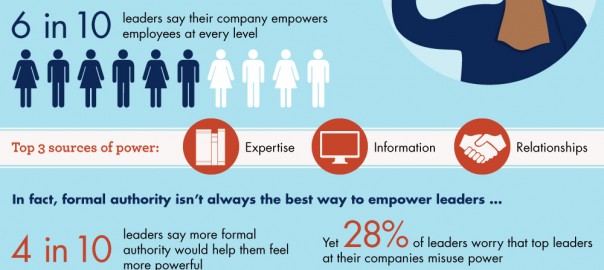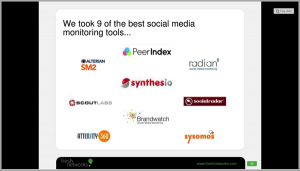Leadership is often viewed as a sort of indefinable aura or born-to-it talent. But the truth is that leadership is a skill like any other – it can be learned, and improved, through practice.
It’s also a skill that has had to adapt with time, just like the rest of the modern entrepreneur’s repertoire. This infographic, from the New England College’s School of Graduate and Professional Studies, offers some insight into what techniques have become most valuable for modern leaders. These techniques are in demand, because companies are in need of skilled leaders to power the growth they crave. 53% of organizations rated growth as their number one priority in 2013, the number one response; cost reduction was second at 40%, followed by innovation at just 34%. There can be no growth without competent leadership.
The most successful companies are keenly aware of the need to be aware of ethical considerations. 80% of top quintile companies aim to adapt ethics and compliance to changing business needs, whereas only 36% of bottom quintile companies do the same. 79% of top quintile companies also embrace and celebrate ethical leadership; a stunning 16% of bottom quintile companies similarly reflect a passion for ethical leadership. The benefits are clear: long term business performance and value, compliance with regulations, and employee commitment to values and mission.
Successful leaders are empowered, but there’s more to power than having a C-suite. 94% of leaders say they’re powerful in their positions, but 60% point out that their companies empower employees at every level. The most important sources of power? Expertise, information, and relationships. Formal authority, on the other hand, can often be as much liability as asset. Four in ten leaders say that more formal authority would help them, but 28% also feel that top leaders in the company misuse power.
Effective leadership is most apparent – and its lack most strongly felt – during times of change and crisis. The most important behaviors from corporate management during times of change are inspiration, defining of expectations and rewards, challenging assumptions while encouraging appropriate risk-taking, and most important of all, communicating. Two thirds of employees say that financial performance and company culture are inextricably linked, which makes sense. Despite all of this, just over a quarter of corporate leaders are reluctant to share updates with employees during a crisis.
Adaptation remains the key to success in the swiftly changing tides of the modern business environment, but 70% of change initiatives at businesses fail, usually because of employee attitudes and management behavior. Successful leaders will recognize that 80% of the workforce’s motivators are different to their own. Good leaders will listen to employee input, link compensation to expectations, and personally thank and reward employees. In addition, it is important provide opportunities for employees to practice what they’ve learned during a major change. After hosting a lecture and then leaving employees to fend for themselves, retention is just 10% after three months; however, after teaching employees on the job, retention is 65% after three months, and with opportunities to practice what they’ve learned in the workplace for several weeks, retention after three months is nearly 100%.
Good leaders will take this knowledge to heart and provide sound, rational, and ethical leadership to their employees and their companies. Leaders set the tone for company culture, and there’s no doubt that culture and performance are directly linked.
(218)
Report Post








